选择热点
 荷兰莱顿大学
荷兰莱顿大学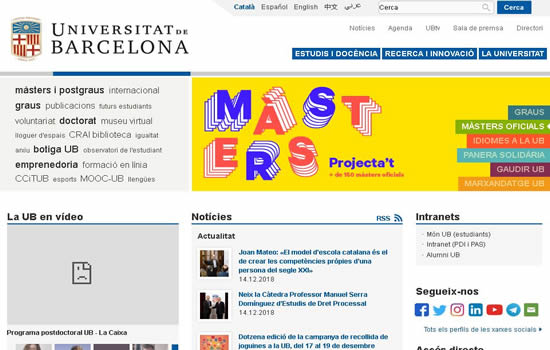 西班牙巴塞罗那大学
西班牙巴塞罗那大学 巴西圣保罗大学 University of Sao Paulo, Brazil
巴西圣保罗大学 University of Sao Paulo, Brazil 台湾南华大学 University of South China in Taiwan
台湾南华大学 University of South China in Taiwan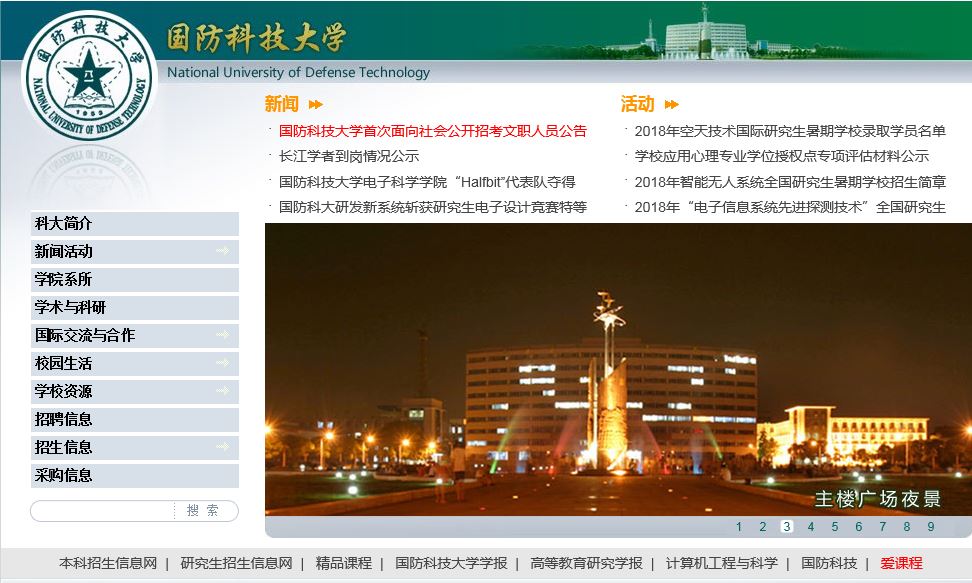 科技大学 National University of Defense Technology
科技大学 National University of Defense Technology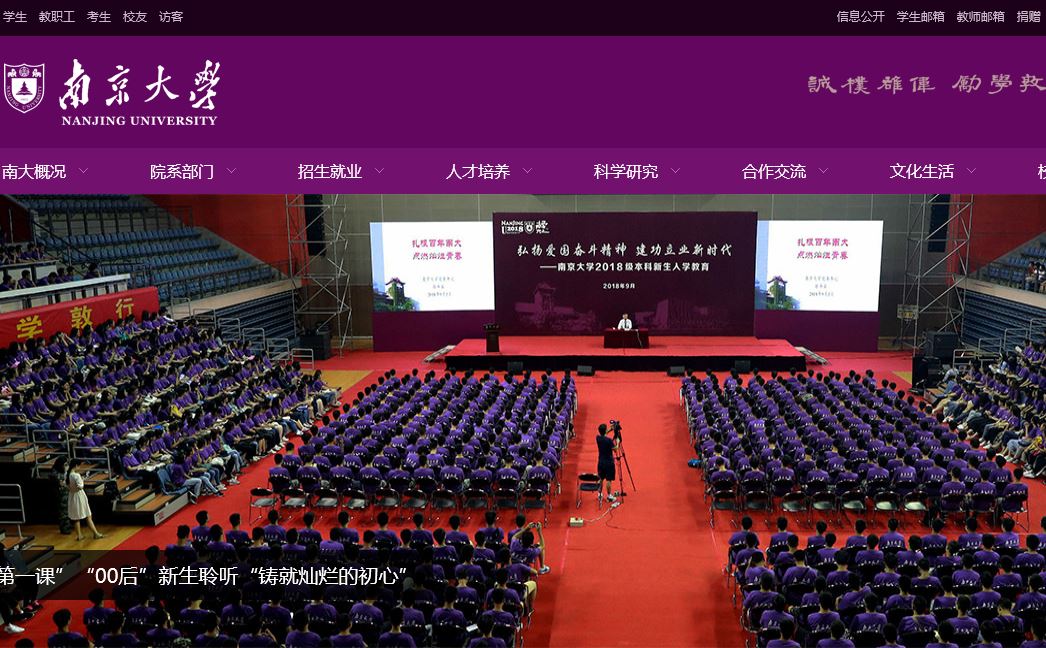 南京大学 Nanjing University
南京大学 Nanjing University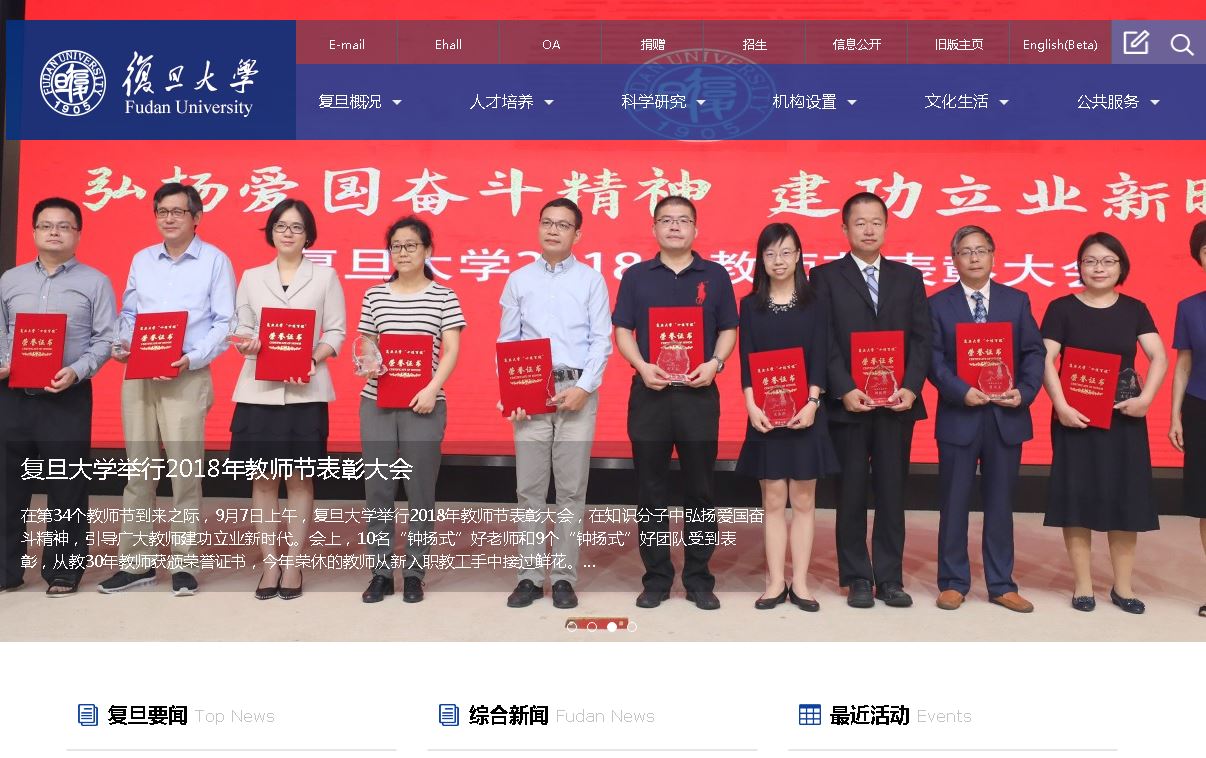 上海复旦大学 Fudan University
上海复旦大学 Fudan University 泗水大学(Ubaya)
泗水大学(Ubaya) 印尼大学 universitas indonesia
印尼大学 universitas indonesia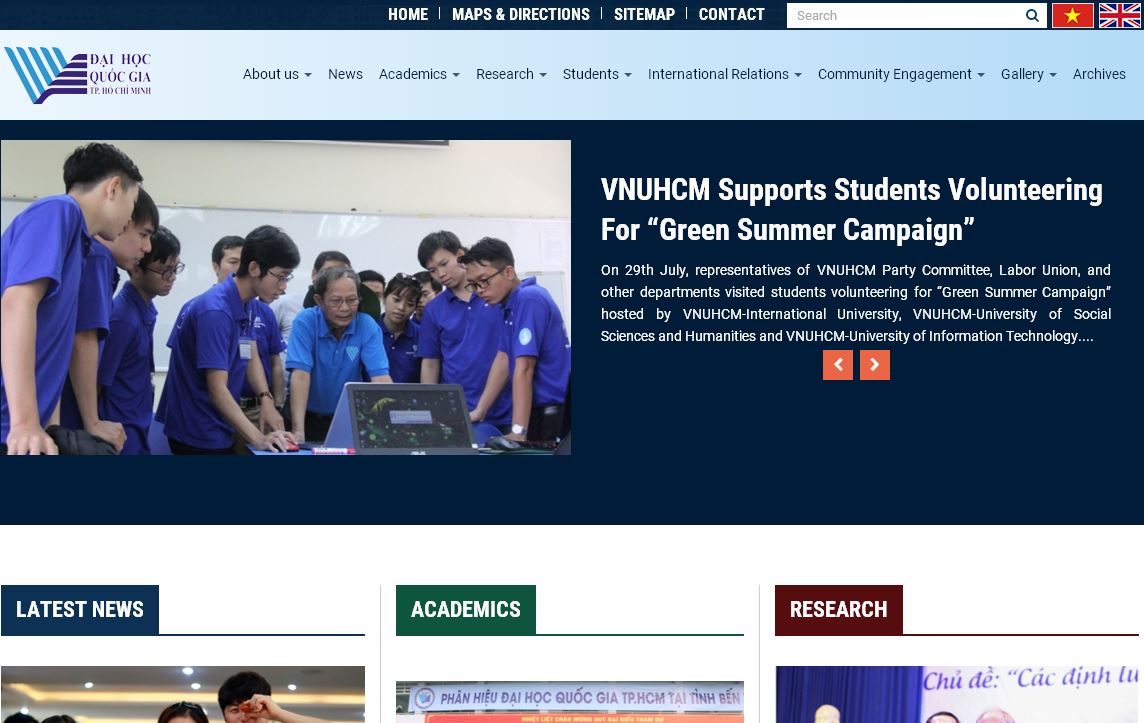 越南某大学 Vietnam National University
越南某大学 Vietnam National University 菲律宾大学 University Of The Philippines
菲律宾大学 University Of The Philippines
禁用外语缩略词真能“保护”汉语吗
发布时间:2025-01-06
来源:大学网站
广电总局禁电视节目用外语和缩略词,也就是说NBA”、GDP”、WTO”都将告别央视,由此引起一阵热议,这么做真的能起到保护汉语的目的吗?
An increasing number of Chinese TV viewers are English-literate, especially the younger generationWhat do they think about this issue?
I am now joined by my colleague Wang Guan.
So Wang Guan, do Chinese young people think banning English and English abbreviations on TV is a good way to preserve the Chinese language?
Wnag Guan:Well, it's true that much of the English vocabulary has made it into the Chinese language.
But, it is also true the other way around.
I mean, you find quite a few Chinese expressions in the English vocabulary.
For example, food.
Many people around the world love Chinese food, and if you ask them what they like they can tell you Kung pao Chi Ting and Ma Po Tofu.
Another example.
Many of my foreign friends here told me they actually built their homes or arranged their furniture comforming to Chinese "Feng Shui" and in their spare time they watch Kung fu movies.
Also some say they are particularly interested in Yin and Yang, which of course represents the Chinese understanding of how things work in life.
As we know the outer circle represents everything, while black and white represents the interaction of Yin and Yang, which causes everything to happen.
They are not completely black or white, just as things in life are not completely black or white.
So we feel that languages are just like Yin and Yang, they can preserve their own uniqueness while absorbing and enriching each other.
ANCHOR:But we do see a worrying situation, that is, many young Chinese these days are not as good as they should be at writing in Chinese.
Many of them have actually invented new words on the Internet, which soon became extremely popular in mainstreamculture.
Wang Guan:Yes, for example, if you look at the screen you will see this word 囧.
Some of you may know it, but many of you may not.
Honestly I just recently learnt that it's pronounced as Jiong, meaning embarrassed.
As you see, it looks like a face with down cast eyes and a mouth.
And amazingly, it has the same pronunciation as the word embarrassment in Chinese.
So out of thin air, young people created this word and began using it when they are sad or depressed.
And now it's very popular.
And similarly, people created this word 呆呆.
There is a double of 呆 which means silly or stupid.
Two 呆 or "sillys" together, of course, mean VERY VERY stupid.
I guess that amounts to a moron or an idiot.
So these Internet languages are fast becoming everyday language.
【禁用外语缩略词真能“保护”汉语吗查看网站:[db:时间]】
An increasing number of Chinese TV viewers are English-literate, especially the younger generationWhat do they think about this issue?
I am now joined by my colleague Wang Guan.
So Wang Guan, do Chinese young people think banning English and English abbreviations on TV is a good way to preserve the Chinese language?
Wnag Guan:Well, it's true that much of the English vocabulary has made it into the Chinese language.
But, it is also true the other way around.
I mean, you find quite a few Chinese expressions in the English vocabulary.
For example, food.
Many people around the world love Chinese food, and if you ask them what they like they can tell you Kung pao Chi Ting and Ma Po Tofu.
Another example.
Many of my foreign friends here told me they actually built their homes or arranged their furniture comforming to Chinese "Feng Shui" and in their spare time they watch Kung fu movies.
Also some say they are particularly interested in Yin and Yang, which of course represents the Chinese understanding of how things work in life.
As we know the outer circle represents everything, while black and white represents the interaction of Yin and Yang, which causes everything to happen.
They are not completely black or white, just as things in life are not completely black or white.
So we feel that languages are just like Yin and Yang, they can preserve their own uniqueness while absorbing and enriching each other.
ANCHOR:But we do see a worrying situation, that is, many young Chinese these days are not as good as they should be at writing in Chinese.
Many of them have actually invented new words on the Internet, which soon became extremely popular in mainstreamculture.
Wang Guan:Yes, for example, if you look at the screen you will see this word 囧.
Some of you may know it, but many of you may not.
Honestly I just recently learnt that it's pronounced as Jiong, meaning embarrassed.
As you see, it looks like a face with down cast eyes and a mouth.
And amazingly, it has the same pronunciation as the word embarrassment in Chinese.
So out of thin air, young people created this word and began using it when they are sad or depressed.
And now it's very popular.
And similarly, people created this word 呆呆.
There is a double of 呆 which means silly or stupid.
Two 呆 or "sillys" together, of course, mean VERY VERY stupid.
I guess that amounts to a moron or an idiot.
So these Internet languages are fast becoming everyday language.
【禁用外语缩略词真能“保护”汉语吗查看网站:[db:时间]】
- 上一篇: 愚人节假新闻满天飞 小贝将挂帅澳国家队
- 下一篇: 伦敦拟为奥运打造新地标
相关阅读
目录列表
资讯列表
英语资讯


共0条评论
网友评论温馨提示:您的评论需要经过审核才能显示,请文明发言!